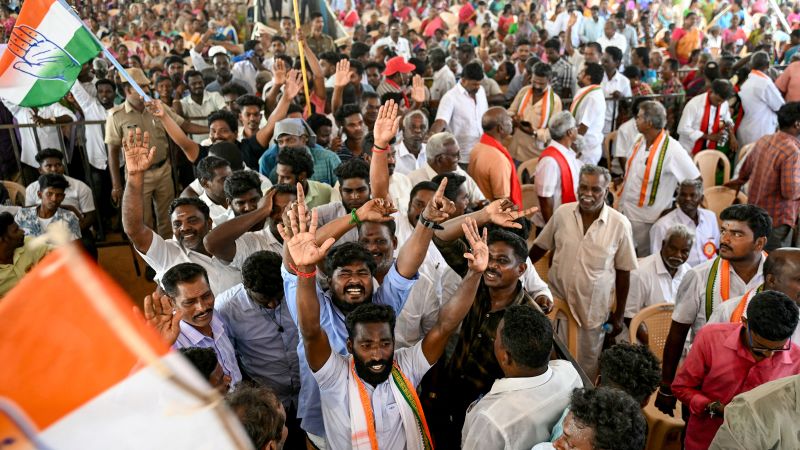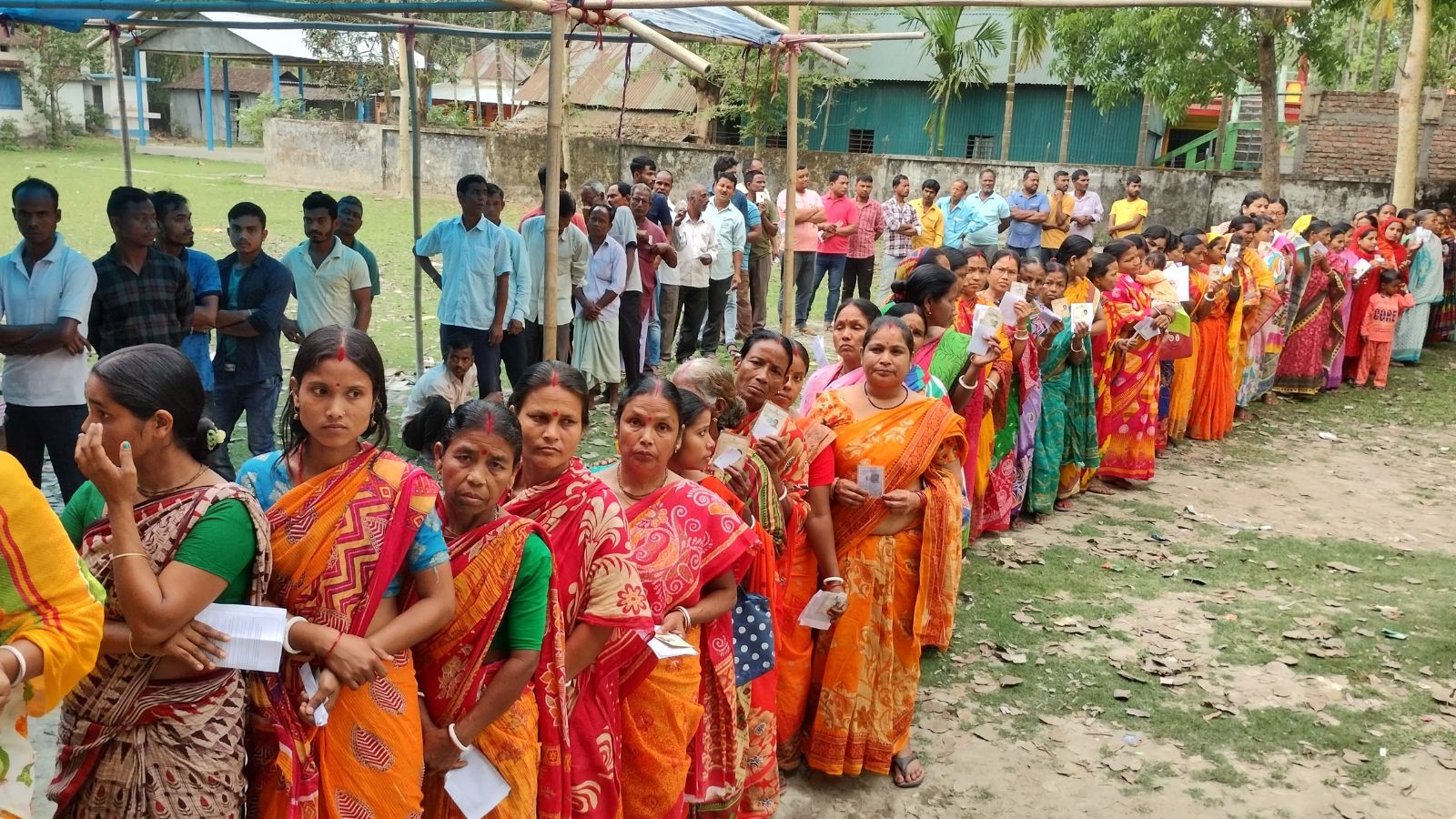
In the ongoing Lok Sabha elections, India's opposition parties held a rally at Ramlila Maidan in New Delhi to save democracy and unite against Prime Minister Narendra Modi. The main opposition party Indian National Congress chief, Mallikarjun Kharge, urged crowds to fight united and warned of an uneven playing field in the election. Meanwhile, voting for the world's largest election is underway for six weeks with Prime Minister Modi heavily favored to win a third term. However, concerns have been raised about his commitment to democratic values due to his consolidation of power and crackdown on dissent. In the first phase of elections, approximately 48 lakh enrolled voters did not turn up to vote compared to the last time, resulting in a decline of around four percentage points.
The opposition rally at Ramlila Maidan marked their strongest attempt yet to sway voters against electing Prime Minister Modi for a third term. Kharge implored the crowds to save democracy and fight united against an uneven playing field in the election. The consequence of continued Bharatiya Janata Party (BJP) rule, they say, would be the erosion of India's democratic foundation.
Voting for the world's largest election is underway for six weeks with Prime Minister Modi heavily favored to win a third term. However, concerns have been raised about his commitment to democratic values due to his consolidation of power and crackdown on dissent. In the first phase of elections, approximately 48 lakh enrolled voters did not turn up to vote compared to the last time, resulting in a decline of around four percentage points.
Tamil Nadu, with its 39 seats, saw its voting percentage decline by roughly 3 percentage points from 72.44% to 69.46%. Uttarakhand, with five seats, witnessed a dip of almost six percentage points from 61.88% to 55.89%. The Election Commission is looking at ways to bring more voters out in the subsequent phases of elections.
The opposition rally came as Prime Minister Modi's BJP party is heavily favored to win a third term, but concerns have been raised about his commitment to democratic values due to his consolidation of power and crackdown on dissent. The first phase of elections saw a decline in voter turnout with approximately 48 lakh enrolled voters not turning up compared to the last time, resulting in a decrease of around four percentage points.

